Why Do Dogs Lick Their Butt? [5 Reasons]
Dogs have a well-earned reputation for being messy eaters. They’ll pretty much put anything in their mouths, from sticks and stones to garbage and, well, you know. But have you ever wondered why your dog spends so much time licking their butt?
Everyone’s got that one gross thing they do that they wish they could stop. For humans, it might be picking your nose or biting your nails. For dogs, it’s licking their butt. So while it might gross us out, it’s actually perfectly normal behavior for them.
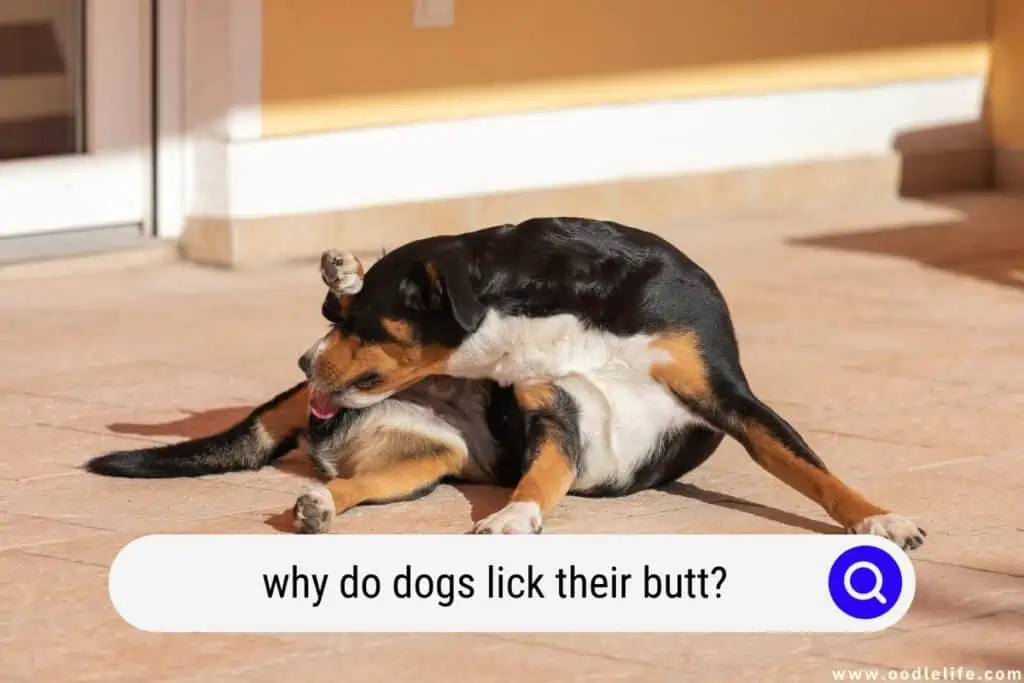
If your dog is excessively licking their rear end, it’s important to take them to the vet to rule out any health problems. Turns out there are a few reasons why your dog might be licking their rear end.
Common Reasons For Butt Licking
It’s normal for your dog to lick their bum from time to time. But if you notice them doing it more frequently, it could signify a problem. Luckily, most causes of excessive butt licking are not severe when addressed quickly.
Instead, it’s most often caused by an infection of some sort. Here are a few of the most common reasons your dog might be more interested in their bum than usual.
1) Anal Glands
Dogs have anal glands located just inside their anus. These glands produce a foul-smelling fluid that is used to mark their territory. Unfortunately, these glands can become blocked, causing the fluid to back up into the gland.
This can be pretty uncomfortable for your dog and may cause him to lick his butt in an attempt to relieve the pressure.
As the condition worsens, you may notice your dog lick or scratch at their butt area or scoot their bottom on the ground. If your dog’s anus region is red, bloody, or seeping puslike fluids, you don’t want them sliding across your carpet.
If your dog is consistently licking his butt or seems in pain, it’s crucial to take him to the vet. The vet can express the gland and release the built-up fluid. In some cases, surgery may be necessary to remove the gland entirely.
However, with proper care, most dogs can live everyday, healthy lives without their anal glands.
Some dogs are simply more susceptible than others to anal gland issues. If the problem occurs regularly and you’ve had enough of vet visits, discuss with your veterinarian how to expel your pup’s anal glands safely at home.
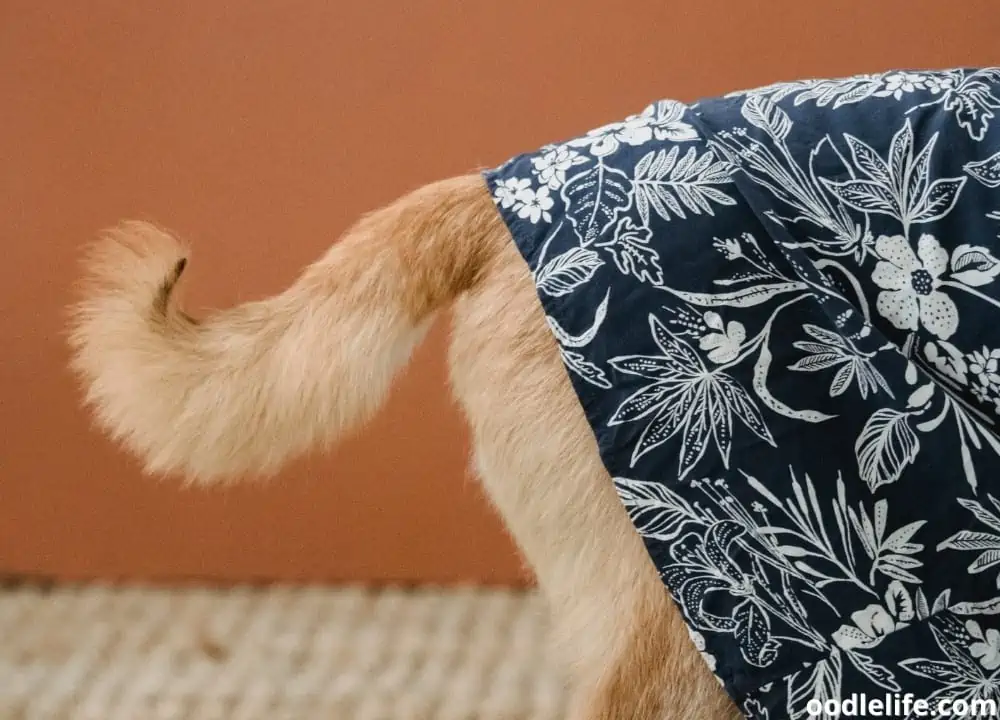
2) Allergies
Allergies are a common cause of butt-licking behavior in dogs. Food allergies, in particular, are relatively common, and they can cause a range of symptoms, including itchiness, gastrointestinal distress, and skin problems. If your dog is allergic to something in his food, he may lick his butt in an attempt to relieve the itchiness.
If you suspect that your dog’s food is the cause of their allergies, talk to your veterinarian about switching to a hypoallergenic diet.
Environmental allergies, such as pollen or dust mites, can also cause symptoms that lead your dog to lick his butt. If you think environmental allergies may be to blame, talk to your vet about possible treatments, such as antihistamines or immunotherapy.
With some detective work, you should be able to get to the bottom of your dog’s butt-licking behavior. In both cases, it’s important to consult with your veterinarian to identify the source of the allergy and develop a treatment plan.
Otherwise, your dog will continue to suffer from uncomfortable symptoms – and you’ll continue to be grossed out by his licking behavior!
3) Skin Infection
Your dog’s butt-licking behavior might be caused by a skin infection. Dogs are prone to skin infections because they typically live in close quarters with other animals. These infections can cause your dog a lot of discomfort, and licking is often the best way to relieve that discomfort.
If you suspect that your dog’s butt-licking behavior is caused by a skin infection, take them to the vet as soon as possible. The vet will likely prescribe antibiotics to clear up the infection. In the meantime, try to keep your dog from licking its butt by using a cone or keeping them on a leash.
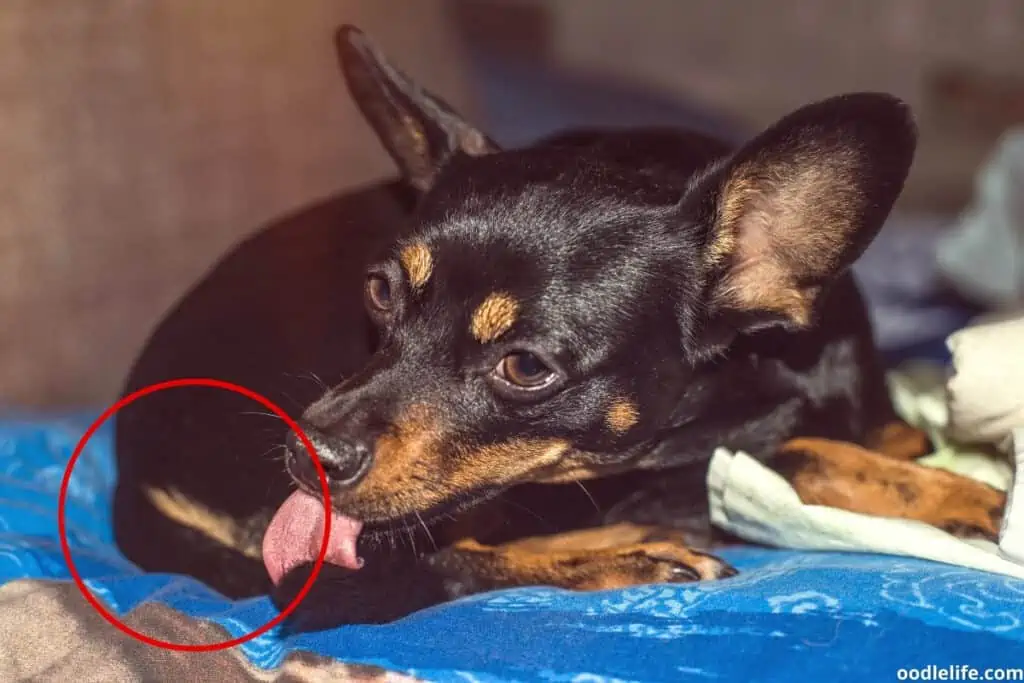
4) Internal Parasites
Many dogs suffer from internal parasites, which can cause a range of symptoms, including anal itching. If your dog is infected with parasites, he may lick his butt in an attempt to relieve the itchiness.
Internal parasites, including hookworms, tapeworms, whipworms, and roundworms that dwell in your dog’s tummy, might lead to anal irritation and other health problems such as vomiting, nutritional deficiencies, anemia, and diarrhea.
Some parasites may also be found in the dog’s rectum and feces. Your vet will prescribe medications to cure the parasites once the fecal sample test is completed.
Internal parasites are not only uncomfortable for your dog, but they can also lead to serious health problems if left untreated.
If you think your dog’s butt-licking behavior is caused by internal parasites, take them to the vet for a diagnosis.
By getting your dog checked out by a professional, you can help ensure that they stay healthy and happy.
5) Anxiety
Dogs often show affection for their owners by licking their faces or body. However, sometimes this behavior can be a sign of something more serious, such as separation anxiety. When a dog feels anxious or stressed, they may lick their own body as a way of self-soothing.
This behavior is most common in puppies and young dogs prone to separation anxiety, but it can also be seen in older dogs who have experienced a change in their routine (such as a move to a new home).
If you notice that your dog is licking their butt more than usual, it may signify that they are feeling anxious or stressed. However, if this behavior persists, it is best to consult with your veterinarian or a certified animal behaviorist to find out how to best address the issue.
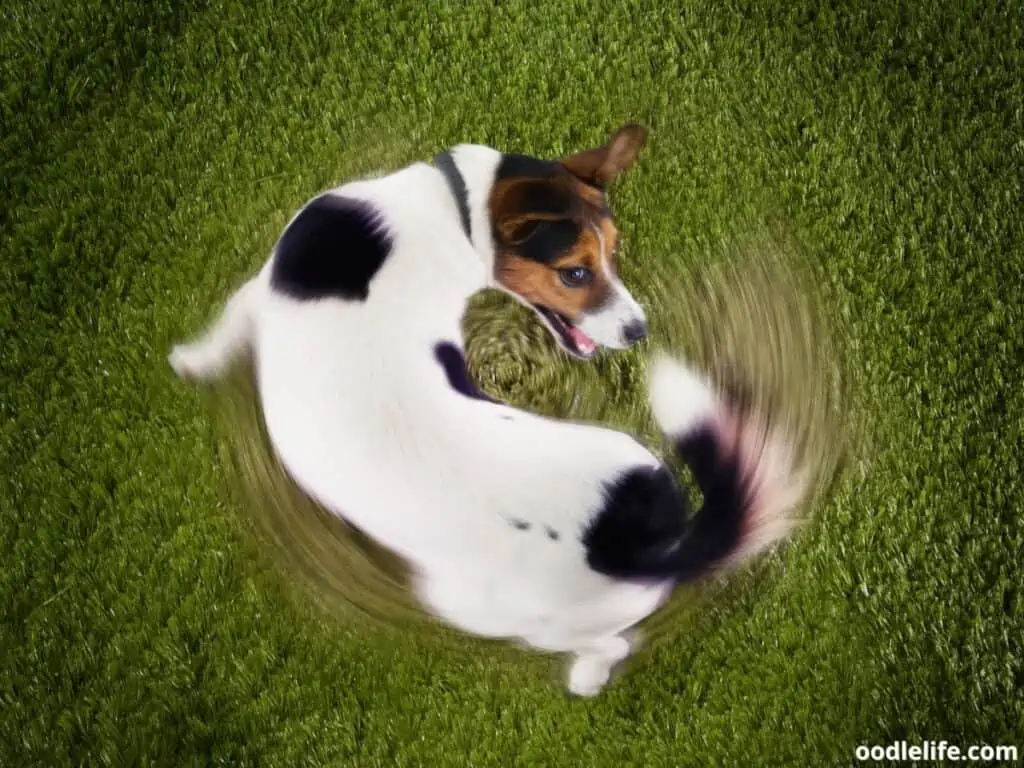
When Should You Be Concerned?
If your dog is licking his butt, there’s a chance he’s doing it to self-soothe an itch. But if the licking is excessive, it could be a sign of something more serious — like allergies, parasites, or infection.
If you notice your dog licking his rear end more often than usual, it’s essential to pay attention to other signs and symptoms.
Is he chewing on his rear end? Scooting his bum across the floor? Vomiting? Diarrhea? Inflammation or skin irritation?
Any of these could be indicative of a bigger problem.
If you’re concerned about your dog’s health, it’s always best to consult with a veterinarian. They can help you determine the cause of the problem and get your pup back to feeling his best.

Stopping Your Pup From Licking Its Butt
As any dog owner knows, dogs are curious creatures constantly exploring the world with their noses and mouths. Unfortunately, this can sometimes lead them to lick less-than-savory body parts, like their rear ends.
While a little licking here and there is nothing to worry about, excessive butt-licking can be a sign of an underlying health issue. For example, your dog may be experiencing anal gland problems or may have developed a food allergy. If you’re concerned about your dog’s licking habits, the best thing to do is take them to the vet for a check-up.
Meanwhile, you can try using an Elizabethan collar (also known as a cone) to prevent your pup from being able to reach her rear end. You can also try changing the shampoo you use on her and keeping an eye out for any irritations that may be causing her to lick. By taking these simple steps, you can help prevent your dog from turning their behind into their new favorite chew toy.
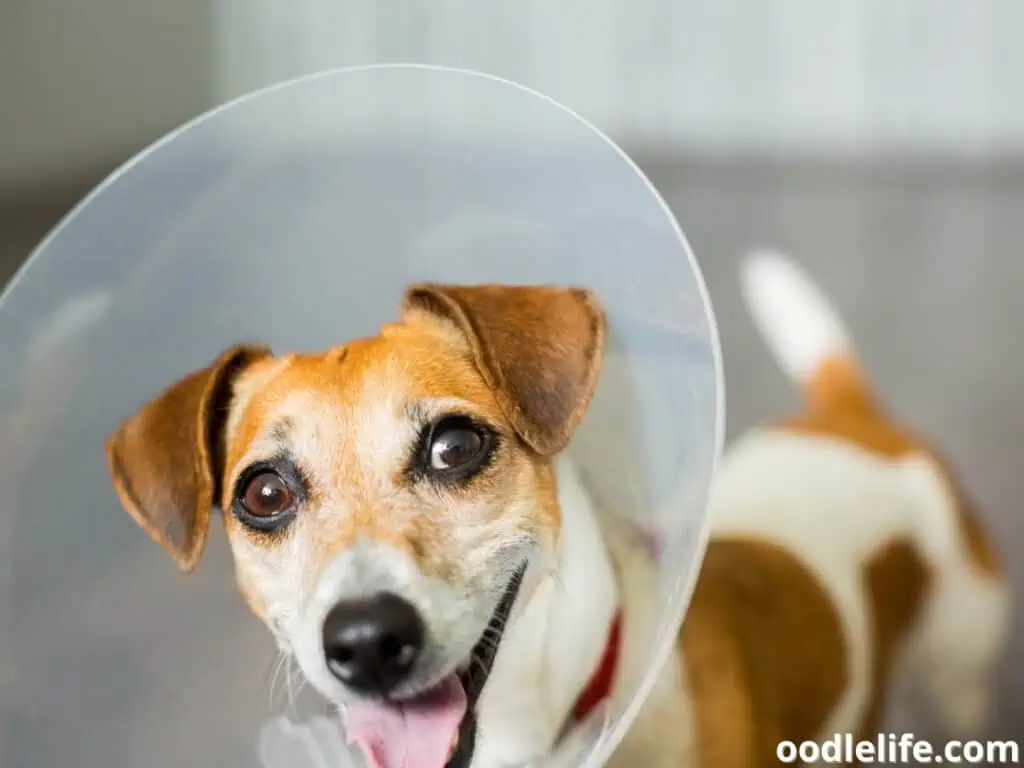
Treatment Plan
Licking excessively or frequently might be a symptom of an underlying medical condition, so it’s essential to visit the vet asap. The veterinarian will examine your pet and may take samples and conduct tests to discover why your pup’s behavior and what should be done about it.
Try bringing a stool sample if at all possible when taking your dog to the veterinarian’s office. It can be helpful in case they do have parasites. In addition, your veterinarian may quickly help when they express your dog’s anal glands if they’re impacted or prescribe meds to kill the parasites.
After the initial vet visit, you will be able to work on a treatment plan for your dog that may include:
- Medications
- Behavior modification training
- Adjustments to diet
- Allergy testing and/or shots
- Surgery (in rare cases)
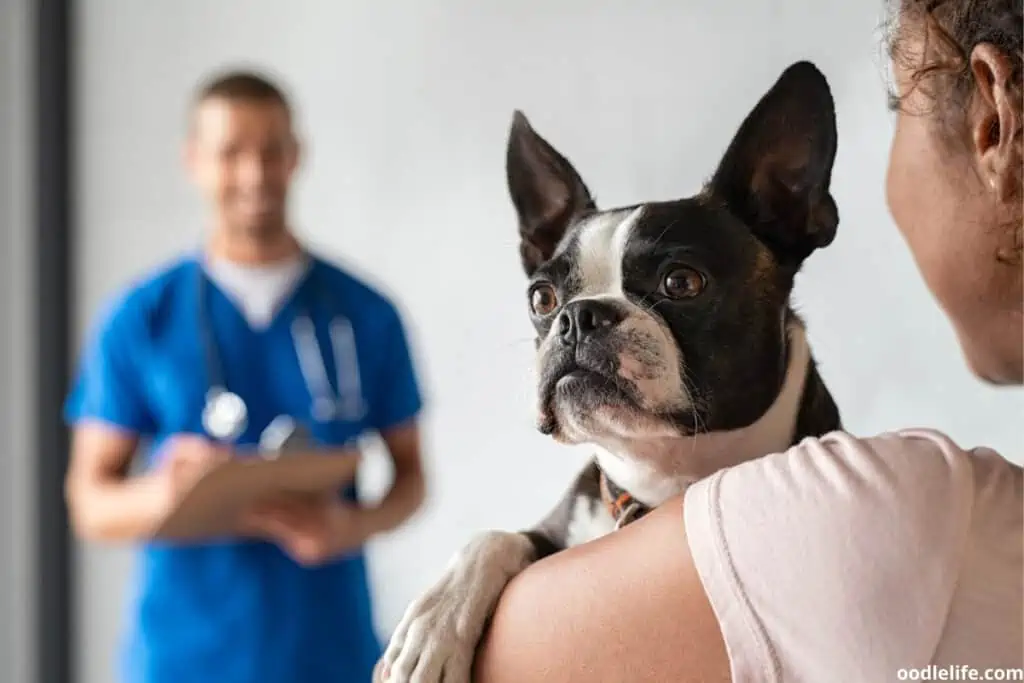
Conclusion
If you’re a dog parent, you know how important it is to observe your furry friend’s behavior. After all, you want to make sure they’re happy and healthy! However, one thing you might not be as familiar with is what’s normal for your pet when it comes to licking their butt.
Of course, all dogs lick their behinds from time to time, but if you watch your pup do it more frequently than usual, it could signify that something’s wrong. This is especially true if your dog seems to be licking their butt excessively or if they appear to be in pain while doing so.
If you suspect that something might be wrong, the best thing to do is a trip to the vet for a check-up. They’ll be able to determine if there’s anything wrong and help your furry friend get relief.
No matter the cause of your dog’s butt-licking behavior, it’s important to be patient and work with your veterinarian to find a solution. With the right treatment plan, you can help your dog feel better and put an end to their licking for good!